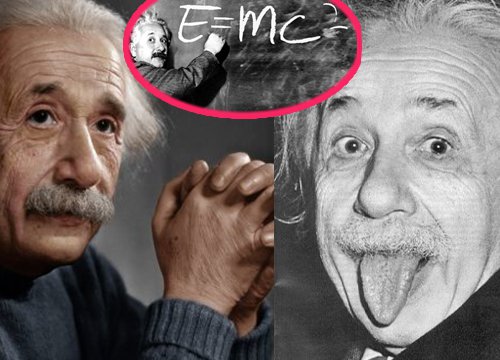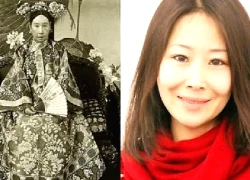Jessica Cox - The first girl without a steering wheel in American history

3 | 0 Discuss | Share
Airplanes were once considered a scientific toy, the invention of the telephone was originally considered a children's toy...but today are indispensable things in human life. Because these inventions are so new and go against social habits, they all have to go through a period of testing public opinion to be recognized for their value.
Light bulb
Before 1800, humans had only one way to create a light source, which was fire. In the mid-19th century, many homes in England used gas for lighting. People have built a gas pipeline system to the house for lighting, however, this light source is relatively weak, not enough for daily needs. Especially not suitable for large outdoor spaces.
The experiment in 1802 by British scientist Humphry Davy can be considered the beginning of the invention of the incandescent light bulb later. After that, there were more than 20 scientists from the UK, Russia, Belgium, France... all had merit in researching, developing and perfecting incandescent light bulbs. But the most significant of them is the British scientist Joseph Swan.
In 1878, Swan gradually developed and perfected his light bulb, he used cotton to make a better bulb filament, plus the increasingly developed vacuum technique. By 1880, it was considered complete, the light bulb has been used relatively commonly in England since then. Swan has registered the copyright in the UK, and he also founded his own company, installing light bulbs for both the government and families in need.
It was not until 1978 that Edison and his talented team of engineers officially started researching to produce light bulbs. Edison's light bulb and his research and development team of engineers are similar to Swan's, allowing electric current to pass through the bulb's filament in a vacuum to glow. Edison initially used platinum to make the filament of a light bulb, but it was not feasible because platinum was too expensive. Edison experimented with all possible materials: from silk, leather, cork, even hair ..., finally found the right material that was carbon fiber made from bamboo stalks. In just a short time, by the end of 1879, Edison also succeeded and registered his invention copyright in the US.
Initially, Edison's invention was opposed and laughed at. They think that light is contrary to nature. Many people liken filament lamps to ghost lights and can only be used in fairy tales. A member of the US Congress once said: "Edison's lightbulb is only useful across the Atlantic, not America". Over time, people also have to acknowledge the value that light bulbs bring. Up to now, the electric light bulb has become an indispensable thing in human life.
Alternating current
Edison was the inventor of the filament light bulb, as well as a proponent of direct current. But this scientist is also an opponent of the use of alternating current researched by scientist Nikola Tesla (1856-1943), even though the efficiency of the new current is much better.
Edison once said: "The promotion of alternating current is only a waste of time. No one will use it". There was even an experiment to prove that alternating current could be lethal to counteract the development of this new trend. However, just a few years later, alternating current took the win. And today, AC is applied in all areas of modern life.
Plane
In 1903, the Wright brothers are considered the inventors of the airplane with a historic 12-second flight. However, this invention has also met with many criticisms. Airplanes are thought to be just fascinating science toys, but they mean nothing to the military.
However, since World War II, airplanes have become a powerful weapon in the military and an indispensable means of transportation. Nowadays, airplanes have become very important means of transportation for every country in the world.
Umbrella
Not an inventor, but Jonas Hanway (1712-1786) helped bring umbrellas into English life. At that time, people thought that the umbrella was a symbol of weakness and carried the French culture - which was an opponent of Britain. In the mid-18th century, the British often disparaged people who used umbrellas on the road. Jonas Hanway ignored public opinion, still walking with an umbrella in hand. People shunned him, calling him a dangerous "monster".
Over time, the British gradually got used to the image of umbrellas on the street and widely used to cover rain and sun. Even though it is considered as a fashion accessory for many women when going out. And no one feels weak anymore when Jonas Hanway for many years bravely resisted the criticism of everyone around him and won.
Phone
The telephone was invented by Scottish scientist Alexander Graham Bell (1847-1922). However, when he tried to sell his invention to the American telecommunications company Western Union for $ 100,000, the company refused because he considered his device to have obvious limitations and was no more than a gift. toys for children.
Yet, less than a decade later, about 150,000 people have cell phones across the United States. Nowadays, if there is no phone, people's life will be very inconvenient.
Television
On March 25, 1925, Scottish inventor John Logie Baird (1888-1946) was the father of television. However, when it was born, television also met many criticisms. The father of radio - Lee De Forest, said that television is an invention that cannot be realized and is expensive to commercialize. Even 20 years later, film producer Darryl Zanuck is skeptical: "People will soon get tired of being glued to the television screen every night."
Spaceship
During the 20th century, Russian scientists, notably Konstantin Tsiolkovsky, tried to find a way for humans to explore space with rockets. In the 1920s, it was assumed that such human flights would never materialize no matter how advanced science was. The New York Times then concluded that the rocket would not be able to leave Earth's atmosphere.
But in 1961, astronaut Yuri Gagarin became the first person to fly into space and in 1969, Apollo 11 successfully landed on the Moon.
In the early 1990s, using a taxi service was like a game of chance. The customer must pay whatever price the driver asks, regardless of the distance. Everything changed only in 1907, when Harry N. Allen - a 30-year-old businessman was charged up to 5 USD by a driver for a distance of only 1.2 km. Furious, he bought a fleet of 65 red Darracqs from France and hired a fleet of his own drivers. This is considered the first modern fleet of taxis.
While Allen's taxis always charge a very affordable fee (only 1/10 of the exorbitant price that Allen paid before), the quality of service is much better.
Computer
Once upon a time, people were afraid of computers. You're probably a little surprised, aren't you? A 1996 book called "Women and Computers" states that many women have a fear of computers. They feel scared every time they read or someone mentions computers. The book also states that women are afraid of becoming computer slaves.
At the present time, we are benefiting a lot as computers are increasingly improved to be more user-friendly and intuitive.
Vaccine
In the 1870s, when a smallpox epidemic broke out in the United States, the government urged people to participate in vaccination. However, there were many people opposed to this campaign. They believe that vaccination is voluntary, no one has the right to force it.
Today, the debate around vaccination is still rekindled somewhere, despite the fact that vaccination is necessary to protect public health.
Can humans travel through time, have you ever wondered?  team youtube16:45:50 12/04/2021In books and in movies, our favorite characters have time machines to travel to the past or to the future. But in real life it's not so easy. Edward Farhi, director of the Center for Theoretical Physics at the Massachusetts Institute of Technology (MIT): Changing clock speed
team youtube16:45:50 12/04/2021In books and in movies, our favorite characters have time machines to travel to the past or to the future. But in real life it's not so easy. Edward Farhi, director of the Center for Theoretical Physics at the Massachusetts Institute of Technology (MIT): Changing clock speed

3 | 0 Discuss | Share

4 | 0 Discuss | Share

4 | 0 Discuss | Share

2 | 0 Discuss | Share

1 | 0 Discuss | Share

2 | 0 Discuss | Share

2 | 0 Discuss | Share

4 | 0 Discuss | Share

5 | 0 Discuss | Share

3 | 0 Discuss | Share

6 | 0 Discuss | Share

3 | 0 Discuss | Share






2 | 0 Discuss | Report